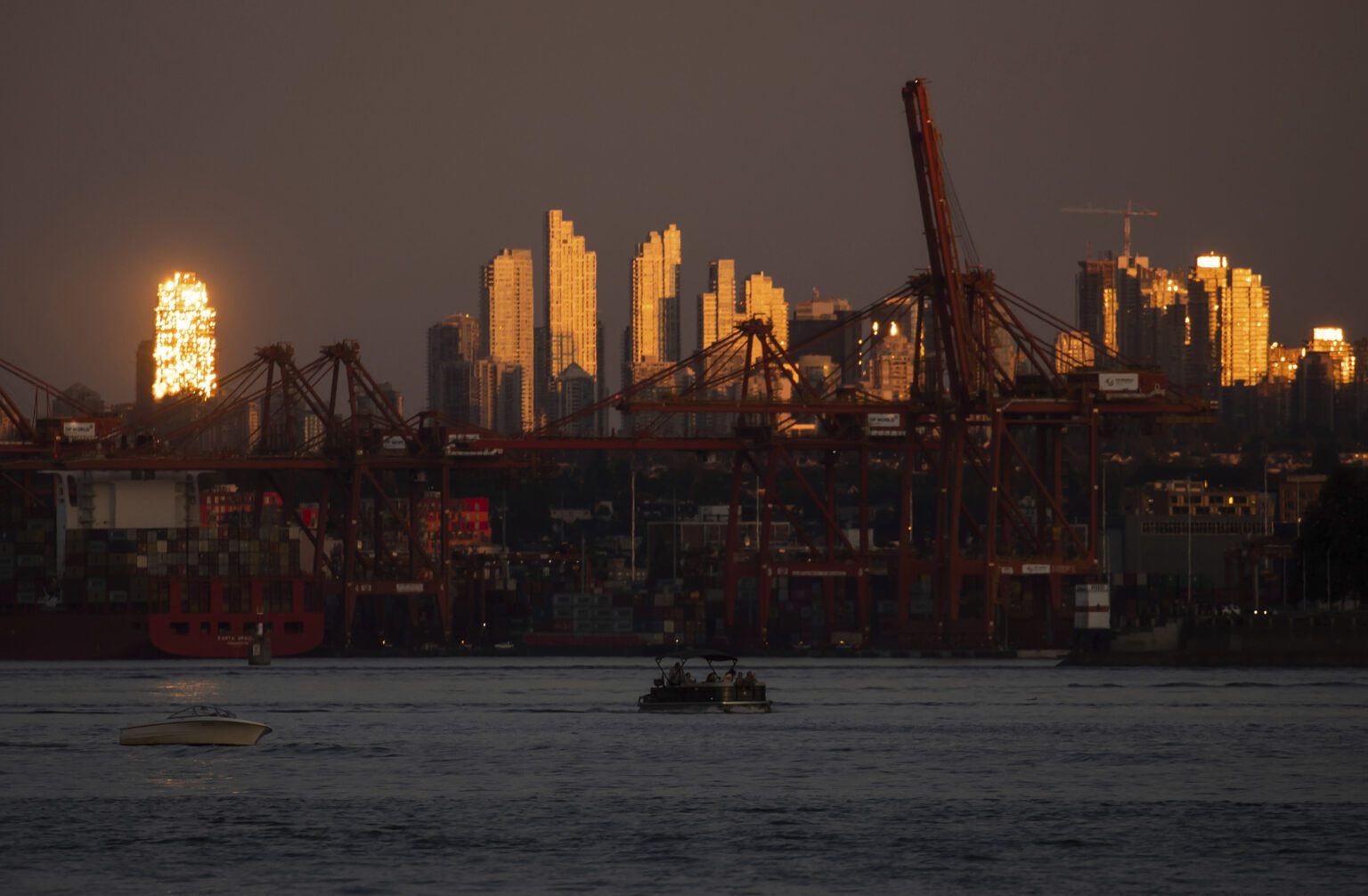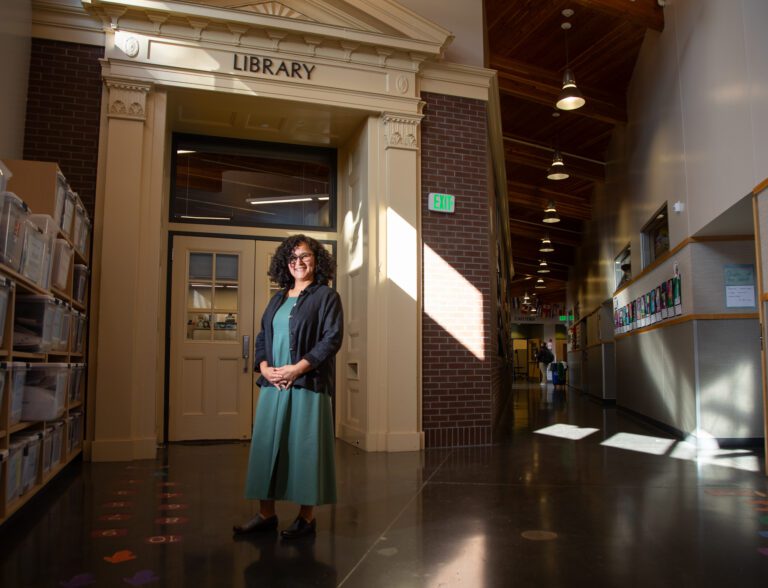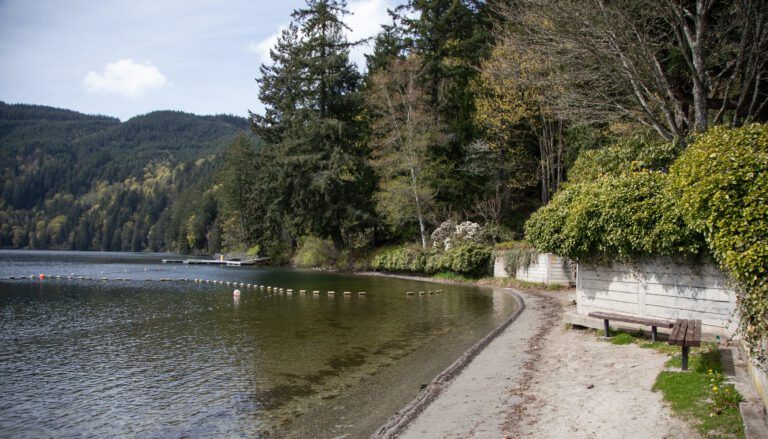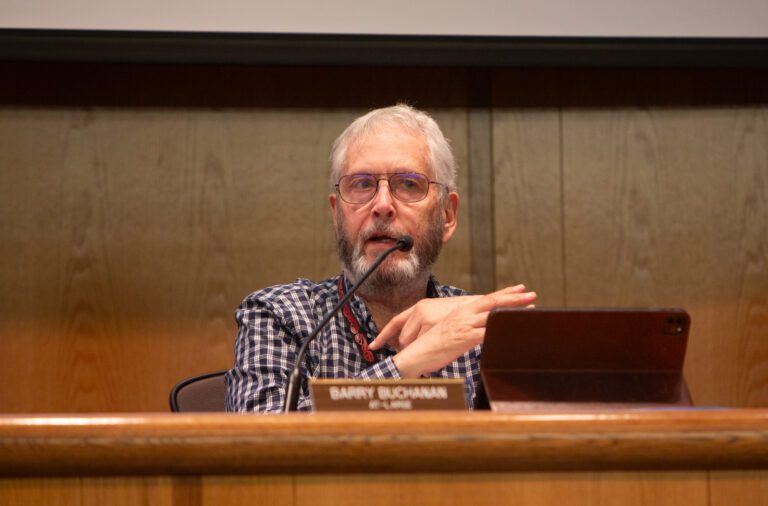A legal filing from the Lummi Nation alleges the Government of Canada neglected its duties to Indigenous communities across the border in approving the controversial Roberts Bank Terminal 2 project, a marine container terminal construction project at the Port of Vancouver.
The judicial review request, filed by the Lummi Nation in May, relies on a creative interpretation and application of a recent Supreme Court of Canada ruling related to cross-border Indigenous rights, experts say.
Although the lawsuit doesn’t seek to block the project — which would add a three-berth marine container terminal near existing port terminals at Roberts Bank in Delta, British Columbia — it does aim to stop the review process until the Lummi Nation has a seat at the table.
Laurie Trautman, director of Western Washington University’s Border Policy Research Institute and fellow at the Wilson Center, said the suit’s purpose is significant, and the fallout depends on how the Canadian courts rule.
“It’s a big question mark, as to what’s going to happen,” Trautman said last week. “But if it did get ruled favorably, it would open up a big opportunity for U.S. tribes.”
The Lummi Nation said the government “refused” to consult the tribe as an Aboriginal people of Canada, despite the Supreme Court of Canada’s landmark decision in R v. Desautel in April 2021, which established Aboriginal rights under the country’s constitution for non-citizens and non-residents of Canada.
R v. Desautel commenced after Richard Lee Desautel, a Washington resident and member of the Lakes Tribe of the Colville Confederated Tribes, was charged with hunting without a license in British Columbia. Desautel argued he was exercising his Aboriginal right to hunt in the traditional territory of his ancestors, and the Supreme Court agreed.
“[Lummi Nation] looked at this case and are applying it much broader than I initially conceived of it,” said immigration lawyer Greg Boos, with Cascadia Cross-Border Law. “As far as I know, this will be the first time the Desautel ruling has been applied to a ruling other than that case.”
Boos called the Lummi’s case “very, very important,” and said it could be a “game changer” for tribes along the U.S.-Canada border, including the Lummi Nation, as well as the Mohawk in New York, the Blackfeet Nation in [Montana], and the Cree in Montana.
Following the Desautel decision, the Lummi Nation, like other Coast Salish tribes, provided evidence for Canada to establish Aboriginal rights.
“Desautel confirmed that our rights were not extinguished by the border. Yet, Canada continues to ignore us,” Hillaire wrote in a statement. “The decision to approve the project without engaging in deep consultation with Lummi not only ignores Desautel, but also overlooks the opportunity we have to work together to restore salmon runs on the Fraser River.”
Canada to date has not acknowledged the tribe’s requests for inclusion.
“Canada has said, ‘We’re still trying to figure out what Desautel means, so be patient,’” said John Gailus, the Canadian lawyer representing the tribe. “But that’s not the way the law works.”
The tribe opted to file the suit against Canada’s Minister of the Environment Steven Guilbeault, among others, after years of attempting to formally consult in the process, and going ignored, Gailus said.
Prior to approving the project, the Vancouver Fraser Port Authority — the administrative arm of the Port of Vancouver — consulted with more than 40 tribes across British Columbia, and secured mutual benefits agreements with 26 Indigenous groups.
Environmental minister Guilbeault identified more than 30 tribal groups that were consulted throughout the review process, including the Semiahmoo First Nation tribe just across the border from Blaine.
“I took into account the concerns and interests identified in the consultation process with Indigenous groups,” Guilbeault wrote in his decision statement for the project.
Gailus said there are many reasons the 26 Indigenous groups could have signed off on the project, including financial and economic incentives.
“They’ve all got to make their individual decision, in terms of whether or not they’re going to hold their nose and take the benefits being offered,” Gailus said. “They could have gotten some cash benefits, potential employment, contracting, training, scholarships, those sorts of things.”
Both Guilbeault and the Vancouver Fraser Port Authority are named in the lawsuit, alongside the Attorney General of Canada. The filing said the project could have significant impacts on the Lummi Nation’s traditional territory, including the Point Roberts peninsula and the surrounding marine areas “where the Lummi have harvested and fished from time immemorial for Fraser River salmon.”
“The claim is … that Lummi had a right to be consulted in this case, given the proximity of the project to areas that they’ve historically exercised rights, both marine and terrestrial,” Gailus said. “The Crown failed to fulfill that duty of consultation. It’s a fairly discrete legal issue, but there’s broader implications if the court agrees that Lummi should have been consulted.”
Hillaire said the project could be “devastating” for members of the tribe, as well as the Fraser River salmon populations.
“The Port of Vancouver is at the mouth of the Fraser River that our chinook salmon rely upon,” Hillaire wrote in an email. “Increased port traffic with the construction of a new terminal could have serious impacts on their ability to survive.”
“Our fisheries pay the price, which means our people pay the price,” he added.
Hillaire said local salmon populations, including those from the Fraser, are struggling in part due to vessel traffic and pollution, which will likely increase with the construction of a new terminal.
The Lummi Nation has a history of opposing development projects the tribe maintains would cause environmental stress in the region. In 2016, the tribe successfully killed a proposed coal terminal — the largest coal port ever proposed in North America — at Cherry Point after the tribe argued the Gateway Pacific facility would infringe on treaty-protected fishing rights. That proposal was rejected by the U.S. Corps of Engineers, a federal agency for a government that recognizes Lummi treaty rights.
The new Canadian filing will likely not be heard in court until the end of this year, Gailus said.
A previous version of this story misidentified the homeland of the Blackfeet Nation. The Blackfeet Nation is located in Montana, not Idaho. The story was updated to reflect this change June 13, 2023 at 12:10 p.m. Cascadia Daily News regrets the error.




